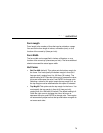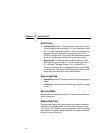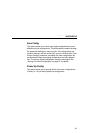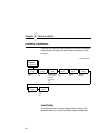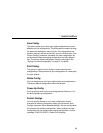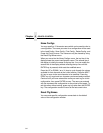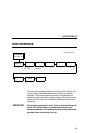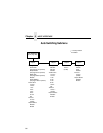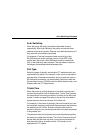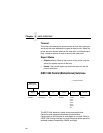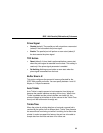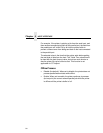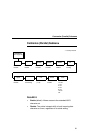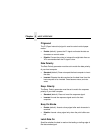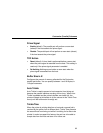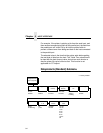
Auto Switching Submenu
87
Auto Switching
Gives the printer the ability to handle multiple data streams
sequentially. With Auto Switching, the printer can service hosts
attached to the serial, parallel, Ethernet, coax and twinax ports as if
they were the only interface connected.
For example, if the host computer sends one print job to the
RS-232 serial port and a separate print job to the IEEE 1284
parallel port, the printer's Auto Switching is able to handle both
jobs, in the order they were received. The user does not have to
reconfigure the selected interface between jobs.
Port Type
Select the types of parallel, serial and/or C/T interfaces which are
connected to the printer. For example, if your printer is attached to
one host with a Centronics connection and a second host with an
RS-422 serial connection, you would select Centronics under the
Parallel Hotport menu, RS-422 under the Serial Hotport menu, and
Disable under the C/T Hotport menu.
Trickle Time
When the printer is printing data from a host and a second job is
received by the printer from a different host, Trickle Time prevents
the second host from timing out while it is waiting for its data to be
printed. In order to support this feature, the port has to be able to
accept data from the host and store it for future use.
For example, if the printer is printing a job from the serial port, and
then receives a second print job from the parallel port, the data from
the parallel port will “trickle” bit by bit into the printer buffer to
prevent a timeout error from being sent back to the host connected
to the parallel port.
The selected value is the time that the printer waits before getting
the next byte of data from the host. The Trickle Time value should
be less than the host time out value, but not too much shorter or
else the printer fills up its buffer too fast. This function is not
applicable for C/T hotport.



